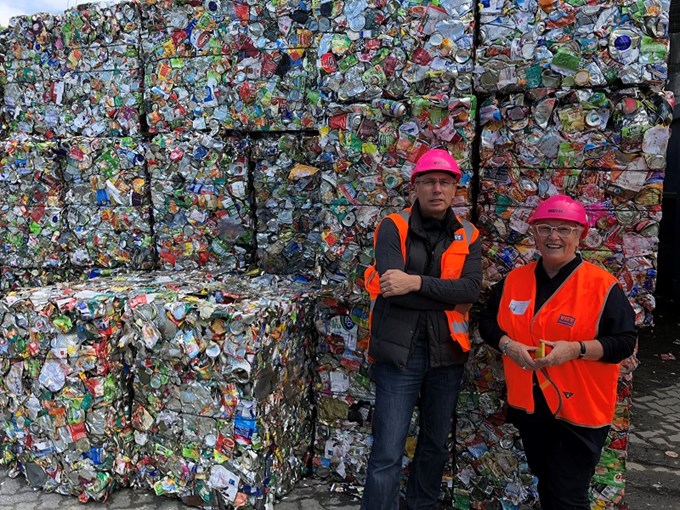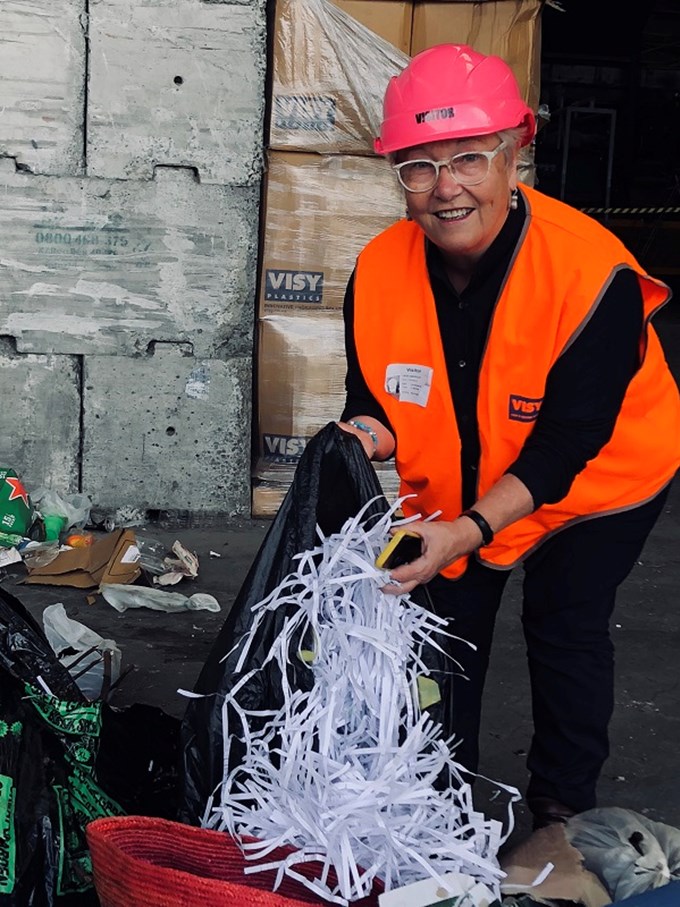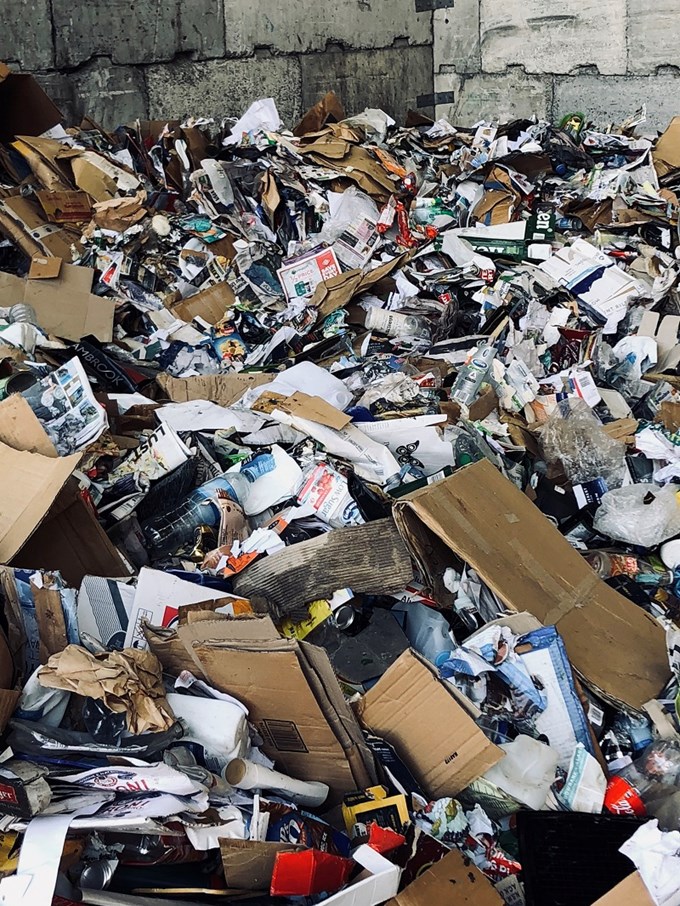Waiheke Local Board Chair Cath Handley has been getting her hands dirty, visiting Visy’s recycling plant to see for herself the state of the waste that arrives from the island.
"I know Waiheke is delighted that single-use plastic bags are set to be banned," she says.
“Islanders have always led on the issue, perhaps because our home is within the Hauraki Gulf Marine Park, and we’re very environmentally aware.
“Back in 2016, Waiheke Countdown became the first supermarket to charge for bags as part of an agreement between the board and Progressive Foods that recognised resident concerns. Now the store has removed biodegradable bags too, but we can’t sit back and say the battle is won,” she says.
“As residents, we have to ask what more we can do, and one of the most obvious things is to stop using plastic bags in our kerbside and bin recycling.”
Plastic bags are a cause of contamination in the recycling stream and can damage the sophisticated recovery plant.
Ms Handley’s tour of the Onehunga facility began with a pile of freshly delivered Waiheke recycling. Mixed in were soft plastic bags, carpet remnants, and even some toilet waste in a plastic bag. There were black rubbish sacks filled with garden waste and shredded paper that could have been composted.
Plant operators say Waiheke’s waste tends to be cleaner than other areas, but there is still more that could be done.

The waste goes on to a sorting belt where pickers remove contaminated items before it moves through two giant drums that separate it by size. Magnets remove steel and the waste continues along a path where sensors detect the type of waste it is and channel it to the appropriate area.
"It’s a constant battle to maximise what can be recovered and to keep out anything that can contaminate the process,” Ms Handley says.
“It’s certainly an eye-opener and a bit of a shock to discover among the many different grades of material being recovered everyday things like light-proof milk bottles can’t be recycled in New Zealand. Unlike the clear ones they largely replaced, and they aren’t worth anything to the recyclers.
“Just imagine what would happen if one supplier, in this case Fonterra, changed its packaging so that it was more economical to recover and could be recycled here in New Zealand. That’s something manufacturers could do, but we all should take responsibility,” she says.
“It didn’t take long to understand why Visy want us to rinse things out either. Quite apart from the smell, anything with a liquid or any kind of product in it can’t be recycled and ends up in landfill. How hard is it to rinse and drain?”
Ms Handley says it’s a chance for Waiheke to again lead.
“Many of us already have 240-litre bins but others, for a number of reasons, do bag recycling. Perhaps we could encourage even more residents to use bins or put recycling in boxes or paper bags. It’s a discussion we need to have as a community.”



